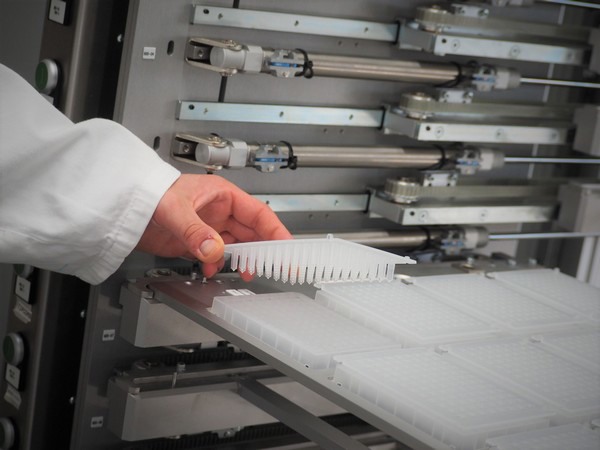"We have a special robot in our breeding program. We use it in the war against viruses and potato diseases. In combination with marker technology, it helps us to develop resistant potato varieties more quickly. That means fewer pesticides are needed, and crop losses remain limited. We think disease-resistant varieties are an important step toward global food security and sustainable potato cultivation," says an HZPC spokesperson.
The Dutch company has had potato cyst nematodes resistant varieties for decades. Now, they also have introductory types with high resistance levels to Phytophthora, viruses, and cyst diseases (aside from nematodes). The aim is that, by 2030, 75% of HZPC's new varieties will be Phytophthora and Y-virus resistant. Here, DNA marker technology is vital - DNA is extracted from the potato plant's leaf, and all its characteristics are mapped out. The more molecular data there is, the more successful the breeding process.

The robot isolates the DNA
"Our R&D lab in Metslawier - where we develop and improve our potato varieties - has a special robot. It is used to help us gain insight into DNA. In 15 minutes, the robot can isolate the DNA from no fewer than 1,536 potato plants. We had the robot custom-built to enable us to gain molecular information more rapidly. Breeding is an exact work. For example, the positive quality aspects of one variety are crossed with a variety that is resistant to multiple diseases."
"We also study offspring DNA to see whether the most sustainable variety is among them. The robot and marker technology greatly accelerate this development. Precision and cultivation volumes are increasing sharply. The chance of new, improved varieties is, therefore, greater too," says the company spokesperson.
More, responsible, food
"We are pleased that we can use this special robot and market technology. We use them in the war against viruses and potato diseases. The Netherlands remains the home of breeding and seed potato production. Our breeding programs are focused on not only disease resistance."
"We also look at food quality and the highest possible - circularly responsible - yield per square meter. Disease resistant potatoes need fewer pesticides. That benefits the environment. Disease resistant varieties limit large-scale crop losses too. That means more responsible food for everyone on earth," concludes the HZPC spokesperson.
For more information:
HZPC
Tel: +31 (0) 513 489 888
Email: info@HZPC.nl
Website: www.HZPC.nl
